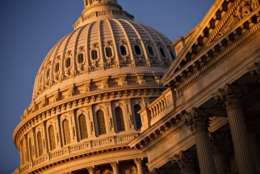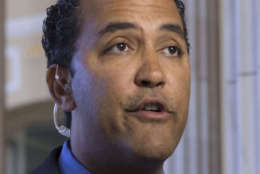Hiring/Retention
-
With the departure of Health and Human Services Secretary Tom Price, the Trump administration is starting to get that swiss cheese look again.
October 04, 2017 -
The Homeland Security and Governmental Affairs Committee will consider more than a dozen bills impacting the federal workforce this week. Here are a few worth watching.
October 03, 2017 -
For some folks, the idea of a ban on burrowing makes a lot of sense. The problem is that solving one problem creates another.
October 03, 2017 -
The Air Force wants retirees to take over some aviation related positions in the service.
October 02, 2017 -
The Veterans Affairs Department said it's having trouble meeting its hiring goal of 1,000 new mental health professionals by the end of the year.
September 27, 2017 -
In yet another study on federal employee compensation finds public sector workers, on average, earn 80 percent more than private sector workers.
September 25, 2017 -
A new survey from Grant Thornton and the Professional Services Council highlights continued challenges federal CIOs face.
September 25, 2017 -
What do buyouts at the Defense Department have in common with matsutake mushrooms? They are both very valuable and very rare.
September 22, 2017 -
The Air Force is still playing catch up in its pilot pipeline despite adding incentive benefits.
September 21, 2017 -
Daniel Payne, the director of the Defense Security Services, said the continuous evaluation program will have 1 million employees by 2018.
September 21, 2017 -
The Trump administration wants to find out how many people work, as in really work, rather than are employed, at the U.N., the State Department and other federal agencies.
September 21, 2017 -
Both the Veterans Affairs and Interior Departments are moving federal employees out of Washington, D.C., and into consolidated regional offices.
September 20, 2017 -
An interim policy released by the Defense Department keeps transgender troops in the military until a review is finished in February. Then it's up in the air.
September 18, 2017 -
The CIO Council, OPM and OMB are hosting a hiring fair Nov. 6-7 in Maryland.
September 18, 2017 -
Social Security, the Veterans Affairs Department and the Office of Personnel Management have one thing in common: a big backlog of applications for what they provide. OPM's National Background Investigative Bureau has a backlog of 700,000. Trey Hodgkins, senior vice president of the Information Technology Industry Council, says this is becoming a national security concern and Congress isn't doing enough to cut it down.
September 15, 2017















